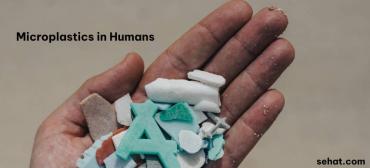Gout
What is gout?
Gout is characterized by inflamed, painful joints due to the formation of crystal deposits at the joints. Also known as "the disease of kings and the king of diseases," gout affects more men than women and is often associated with obesity, hypertension (high blood pressure), hyperlipidemia (high levels of lipids in the blood), and diabetes.
What causes gout?
Gout is caused by monosodium urate crystal deposits in the joints, due to an excess of uric acid in the body. The excess of uric acid may be caused by an increase in production by the body, under-elimination of the uric acid by the kidneys, or increased intake of certain foods that metabolize into uric acid in the body. Foods that are high in purines (the component of the food that metabolizes into uric acid) include certain meats, seafood, dried beans, and dried peas. Alcoholic beverages may also increase levels of uric acid in the body. Gout attacks may be triggered by any/all of the following:
-
Consumption of alcohol
-
Consumption of protein-rich foods
-
Fatigue
-
Emotional stress
-
Minor surgery
-
Illness
What are the symptoms of gout?
| |
| Click Image to Enlarge |
Gout is characterized by sudden, recurrent attacks that often occur without warning. Severe, chronic gout may lead to deformity. The following are the most common symptoms of gout. However each individual may experience symptoms differently. Symptoms may include:
-
Severe, sudden pain in one or more joints (most often the joint in the big toe)
-
Swollen joint(s)
-
Red or purplish, tight, shiny skin over joint
-
Warmth in joint area
-
Fever
-
Chills
-
General feeling of illness
-
Hard lumps of urate crystal deposits under the skin (called tophi)
The symptoms of gout may resemble other medical conditions or problems. Always consult your physician for a diagnosis.
How is gout diagnosed?
In addition to a complete medical history and a physical examination, a diagnosis of gout may be confirmed with the examination of a fluid sample from the joint for the presence of urate crystals.
Treatment for gout:
Specific treatment for gout will be determined by your physician based on:
-
Your age, overall health, and medical history
-
Extent of the condition
-
Your tolerance for specific medications, procedures, and therapies
-
Expectation for the course of the condition
-
Your opinion or preference
Treatment may include:
-
Nonsteroidal anti-inflammatory medications (to relieve pain and inflammation)
-
Colchicine, an oral or intravenous medication (to relieve pain and inflammation; may cause diarrhea and other side effects)
-
Corticosteroids (to reduce inflammation)
-
Increasing fluid intake while avoiding alcoholic beverages
-
Reducing the intake of protein-rich foods
-
Reducing weight (if obesity is a factor)
-
Medication (to lower the uric acid level in the blood)
-
Medication (to block production of uric acid in the body)
-
Surgery (to remove extremely large tophi)





















